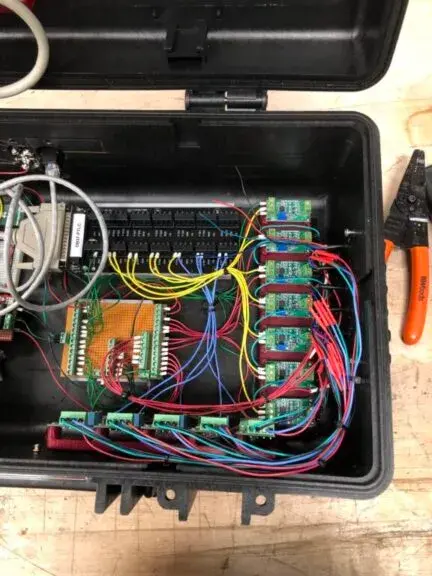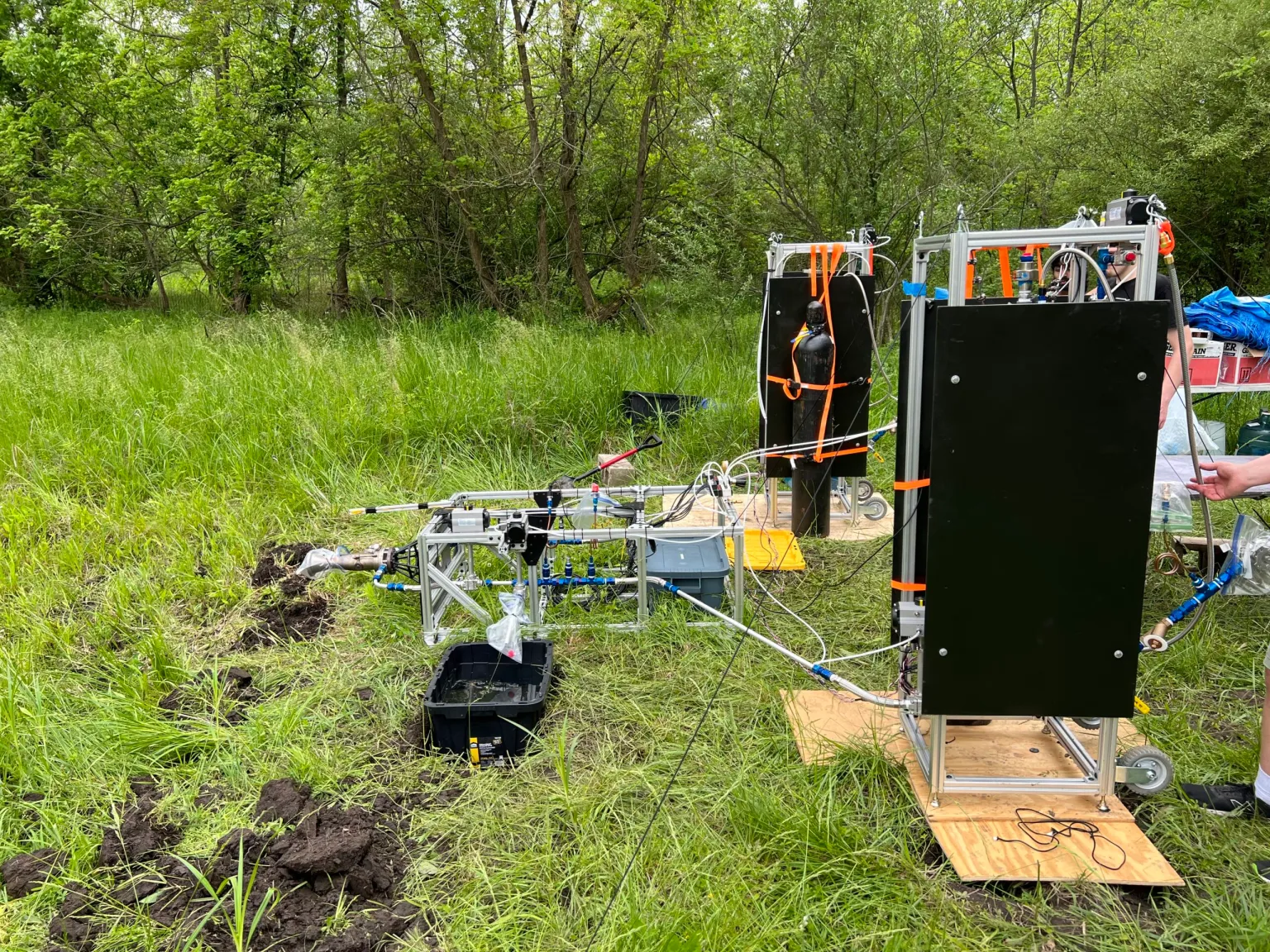23′-24′ Liquids Team
Liquids Project
Our liquids project works to develop student-designed engines while fostering students’ skills with hands-on experiences.
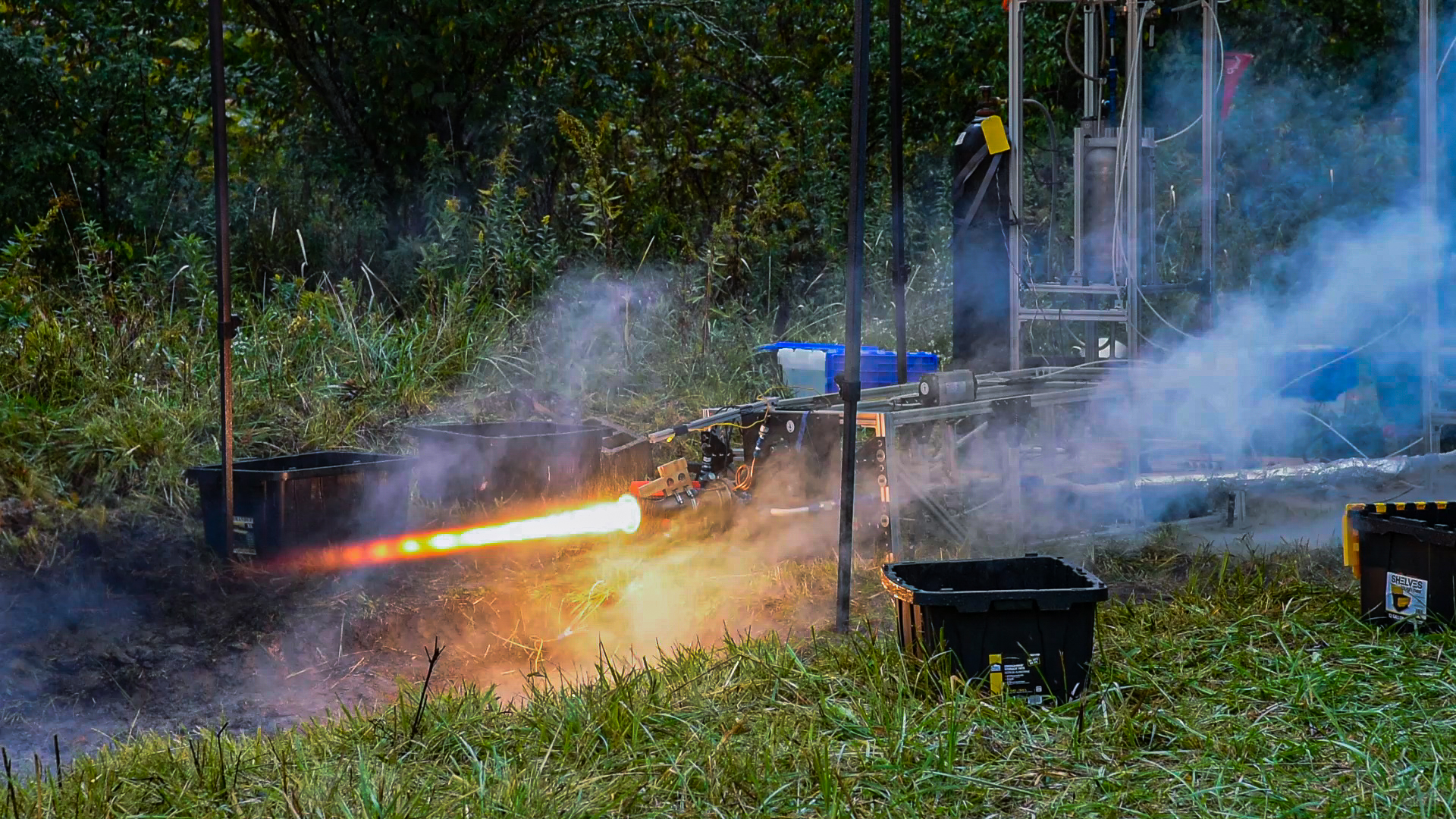
The Liquid Engine Project strives to develop liquid rocketry at Ohio State
Since the beginning, we’ve dreamed of reaching the Karmen line, but it takes a lot of work to get there. Our work in both the NASA Student Launch and IREC (formerly Spaceport America Cup) projects has helped to prepare the foundation; now it’s time to reach new heights. The liquids project works to develop student-designed engines while providing fostering students’ skills with hands-on experiences.
The liquids project has successfully test-fired a commercial LR-101 rocket engine, and work is now focused on developing their additively-manufactured Serenity engine.
Meet the Teams
LR-101
Liquids Engine Project
| THRUST | 3.2 kN / 710 lbf |
| SPECIFIC IMPULSE | 193 sec |
| CHAMBER PRESSURE | 2.1 MPa / 300 psi |
| Project Manager | Zach Campbell |
| Deputy PM | Miguel Abando |
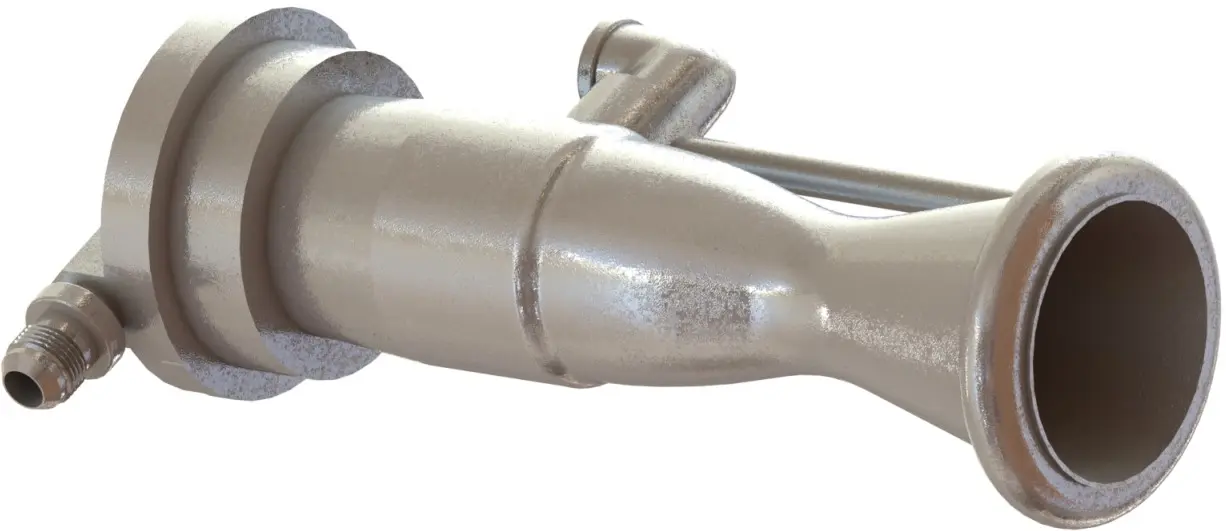
Propulsion
Team Lead: Thomas Yu
The propulsion team is responsible for designing and manufacturing liquid rocket engines. The team’s work focuses primarily on the design and analysis of engines pre and post test fire. Members are taught useful skills and gain valuable experience necessary for working with liquid engines in the industry.
Tools like ANSYS Fluent, Converge CFD, MATLAB, SOLIDWORKS, and NASA CEA are taught and used.
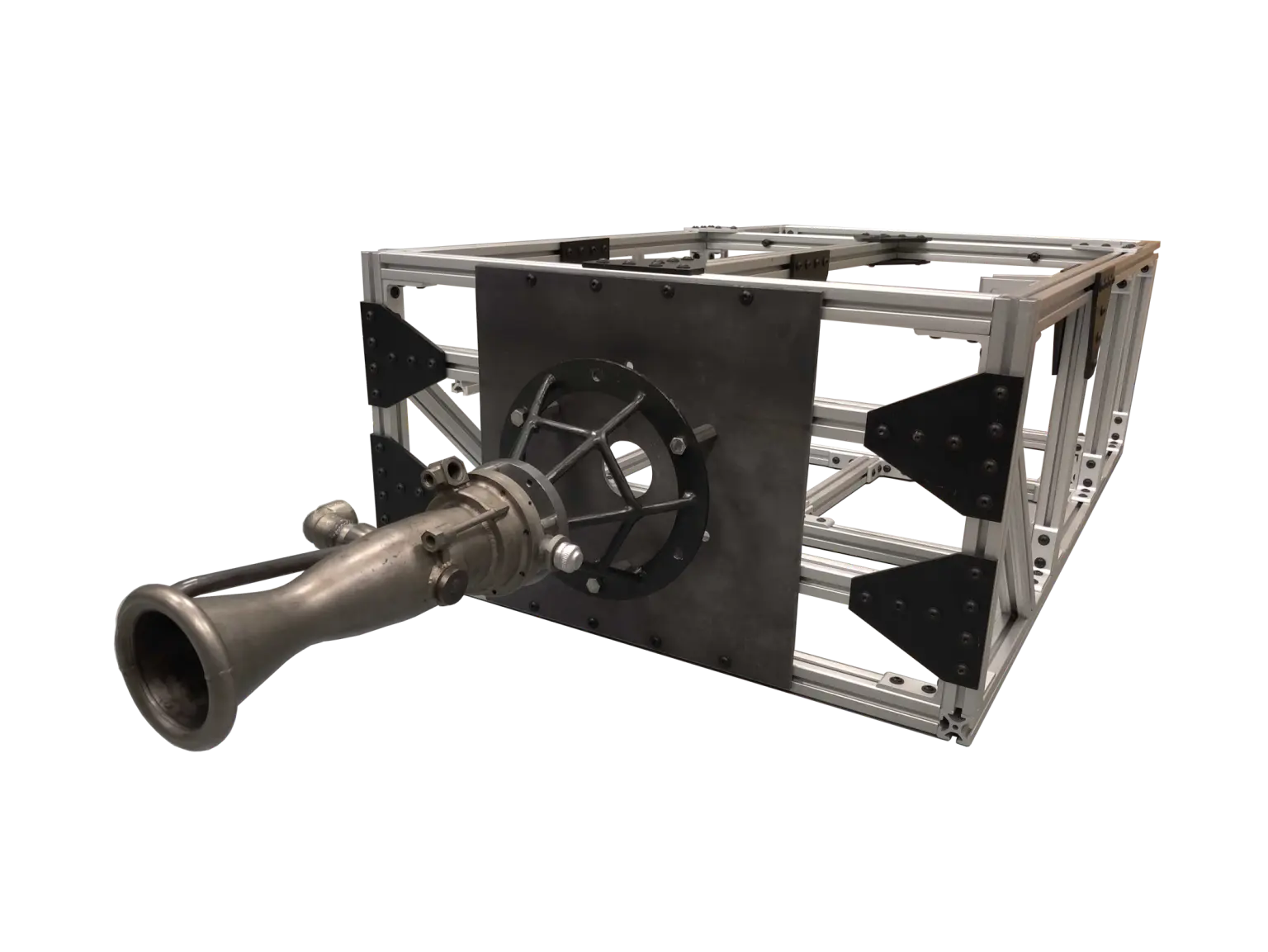
Fluids
Team Lead: Zafar Shaik
The fluids team designs, analyzes, assembles, and maintains all fluid system lines on the test stand. This team is perfect for the manufacturing-minded, as work is consistently being completed on the stand during testing and test fires. Analysis and design are critical to ensure a minimum amount of pressure loss to fluid lines.
Fluids utilize tools like SOLIDWORKS and GFSSP to design and analyze fluid systems for assembly.
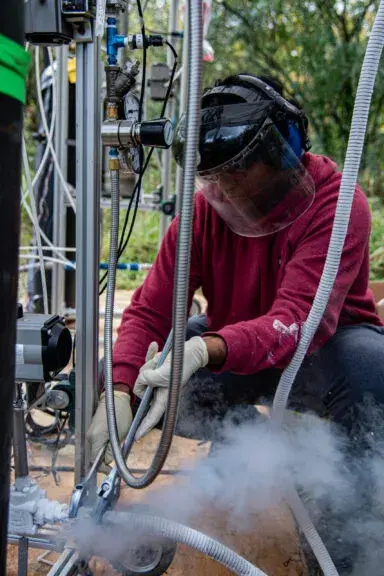
Electronics
Team Lead: Julian Hooks
